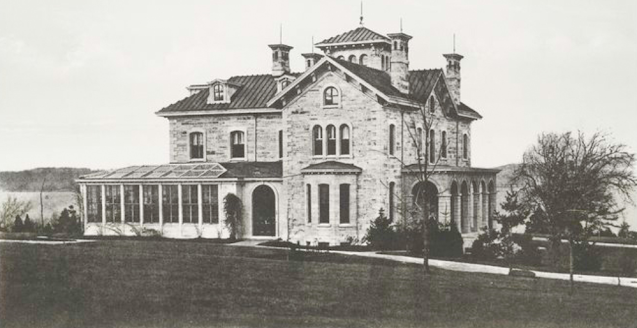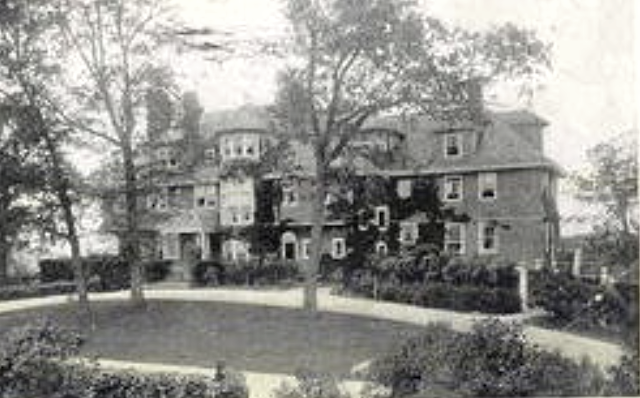Rosedale: Home to Antebellum abolition icon
 |
McNamee (1813- 1871) was a principal in Bowen & McNamee, a leading New York City exporter in silks and dry goods.
McNamee and partner Henry C. Bowen took controversial political stands in crusading against the Compromise of 1850 and the Fugitive Slave Act, which eventually led to a Southern boycott of their company. At the time, Northerners supporting slavery's end were an astonishingly small minority, an estimated 2 to 10 percent of the white population.
The Compromise of 1850, a package of five bills passed by the U.S. Congress on Sept. 18, 1850 that defused a political confrontation between slave and free states over the status of territories acquired in the Mexican-American War. Included were provisions addressing fugitive slaves and the slave trade.
The Bowen & McNamee partners responded by issuing the following statement, published in the New York Journal of Commerce: “The public, including the New York Journal of Commerce, are informed that we are silk merchants, and keep an extensive and well-assorted stock of goods which we offer to responsible buyers on reasonable terms.
“As individuals we entertain our own views on the various religious, moral, and political questions of the day, which we are not afraid nor ashamed to declare on all proper occasions. But we wish it distinctly understood that our goods, and not our principles are on the market. The attempt to punish us for the exercise of our liberty as citizens, we leave to the judgment of the community.
"(Signed) Bowen & McNamee.”
 |
In the fiery national debate over the Compromise of 1850, some 5,000 New York merchants signed a petition supporting a meeting at the Castle Garden immigrant depot at the Battery in lower Manhattan at which attendees would back slavery in slave states in the South. Theodore McNamee and business partner Henry C. Bowen refused to sign and saw their business targeted by a Southern boycott. Castle Garden is shown in an undated postcard ca. 1890.
He built an 18-room mansion on the estate which began just to the south of Jewell’s Brook, now known as Barney Brook, off today’s Station Road and continued south to the edge of the Mairs/Dows estates, properties now occupied by Dows Lane Elementary School and the Half Moon Co-op Apartments..
The estate extended east (towards Broadway) to the Station Road Tunnel and west to the Hudson River.
Rosedale was once part of a farm owned by Capt. John Buckhout, a one-time Philipsburg Manor tenant farmer who purchased his land outright in the aftermath of the Revolutionary War when the fledgling United States seized the property from its loyalist owner, Frederick Philipse III.
Wells Fargo president and American Express co-founder Danford Newton Barney bought Rosedale from McNamee in 1860.
John Brisben Walker, founder of Cosmopolitan magazine, later lived in the 18-room mansion. The mansion and estate were auctioned in 1925 and the property subdivided into 150 plots for single homes a couple years later -- it’s now Spiro Park.
The house was located on the block that lies between today’s Maple and Willow streets south of Station Road in Spiro Park.










Comments
Post a Comment
If you would like to weigh-in, feel free ...